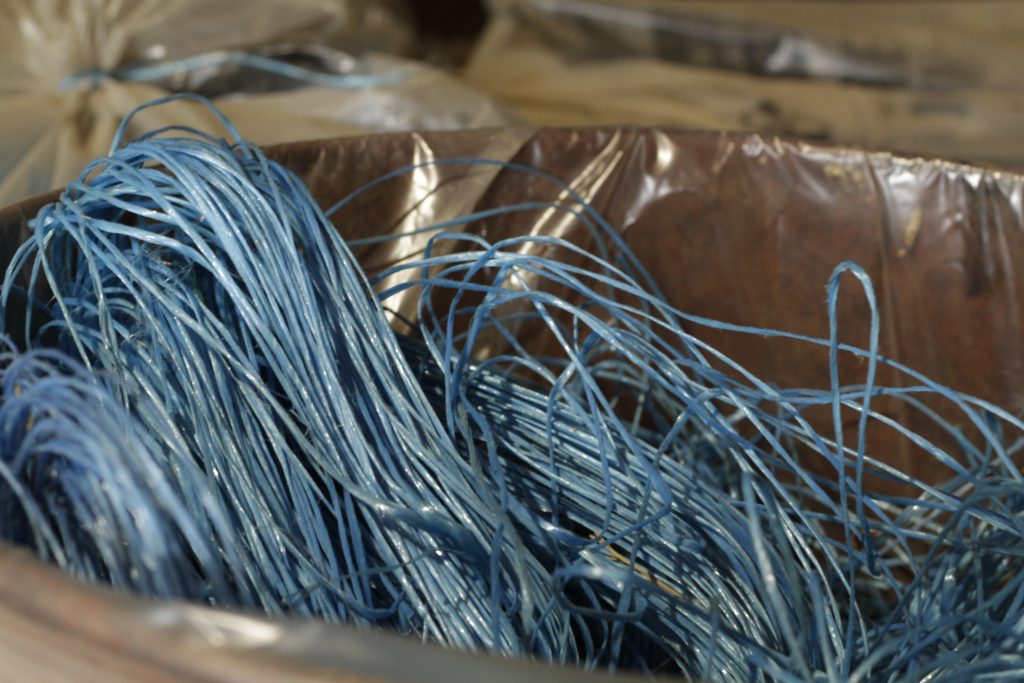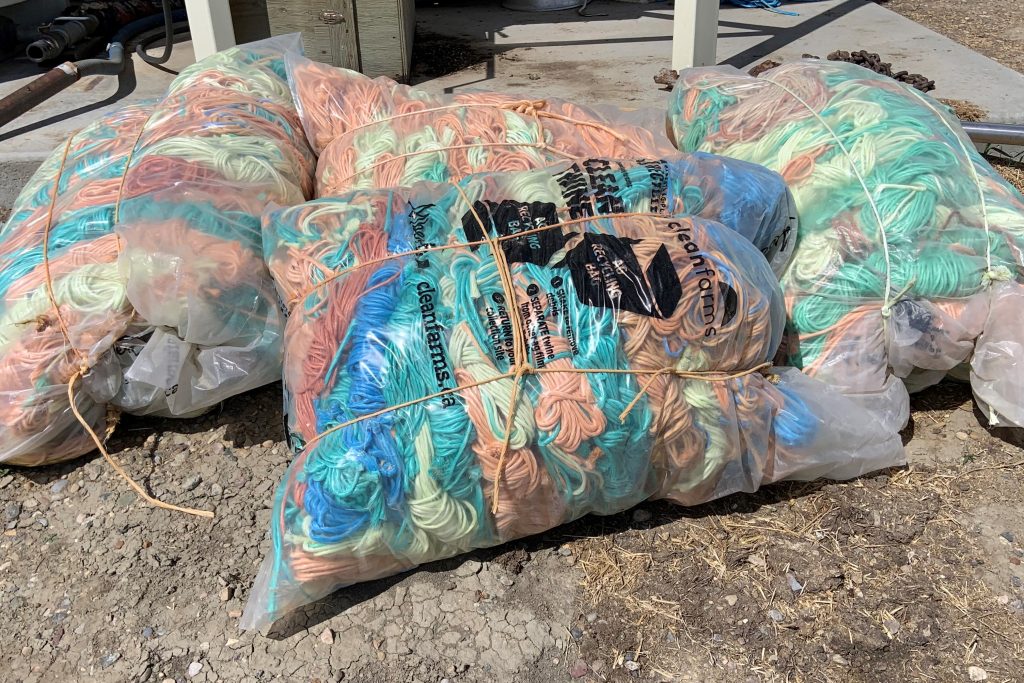AB Direct - Steers
Rail: ---
AB Direct - Heifers
Rail: ---
US Trade- Steers
Rail: ---
US Trade - Heifers
Rail: ---
Canadian Dollar
0.02

Twine – it’s one of the easiest ag plastics to recycle. Really!
Of all the agricultural plastics on prairie farms, baler twine is one of the easiest to overlook when it comes to a commitment to recycle.
Unlike grain bags, which when empty, are a massive amount of plastic laying in the field, baler twine accumulates in smaller bunches, seemingly innocuous, until they start to take over a corner of the barnyard or wrap around farm equipment axles. Some farmers relegate baler twine to the burn barrel, but that’s one of the worst options for managing it because burning twine releases toxins into the air.
So, what can farmers do with used ag twine?
In Alberta, a pilot, ‘Alberta Ag Plastic. Recycle it!’, is underway to give farmers the option to take baler twine to one of dozens of collection centres throughout the province, giving that old twine a new life.

Cleanfarms, which operates the pilot program on behalf of Alberta’s Agricultural Plastics Recycling Group (APRG), sends the used baler twine to recycling facilities in Canada and the U.S. where it is turned into pellets to be used in the production of new materials. Twine is made of polypropylene, which is a plastic that can be easily remanufactured into new products such as car parts, dimensional lumber, flowerpots and composite decking. Down the road, as technology continues to evolve, twine may be remanufactured back into new baler twine, a process that fuels the emerging regenerative circular economy…and one that contributes to farmers’ sustainability goals. Waste analysis studies in the province estimate that Alberta farmers generate just over 14,000 tonnes of various types of ag plastic annually including pesticide and fertilizer containers, grain bags, plastic baler twine, bale wrap, silage bags and bunker covers. That includes about 2,200 tonnes on average of baler twine.
The pilot was introduced in 2019 for used grain bags and baler twine to test the collection, transportation and recycling of these ag plastics. The study also aims to determine if Alberta farmers will participate and take used twine to the collection centres.
Assar Grinde, a cow-calf producer in Ponoka County, says used twine can be collected for recycling with minimal additional effort.
“After a winter of collecting twine for recycling, I was surprised at how much clean twine I collected with no extra work,” he says. “If the twine comes off the bales clean, it goes in the recycling bag, if it comes off dirty with frozen lumps, it goes in the garbage. I would say, don’t worry about getting 100 percent, just collect what is easy and that will have a big impact.”
Listen to cow-calf producer and past ABP director Assar Grinde, in the second segment of Episode 3 of The Bovine, featuring guest host (and ABP Finance Chair) Brodie Haugan.
It is expected that Alberta will follow other provinces and legislate a permanent recycling program for these materials. The approach, known as extended producer responsibility (EPR) involves legislation requiring the first sellers of the material to take responsibility to collect and recycle it after use – they develop, operate and fund the program. EPR has been in place for grain bag recycling in Saskatchewan for four years. Manitoba initiated an EPR approach for grain bags and baler twine last year. PEI has designated the ag materials for EPR and it is anticipated Quebec will pass EPR regulations on ag plastics soon.
How to Prepare Twine for Recycling
The pilot program enables twine recycling by offering large, free, twine collection bags. The next three steps are straightforward:

- Shake – Remove as much debris, snow or ice as possible. Excessive organics and other materials (such as net wrap) mixed with the twine will cause it to be rejected or result in the material being sent to the landfill. Recycling processors wash and shred the plastic, so they need it as clean as possible.
- Bag – Place loose twine in a clear collection bag. They are available at no cost to farmers and can be obtained from pilot collection sites and select County/MD offices. If using your own clear bag, poke holes in the bottom to drain moisture. With any bag, once full, secure it closed with twine or a zip tie.
- Return – Please contact your local pilot collection site prior to dropping off material if unloading assistance is required and if you are unsure if you have prepared it properly.
Cleanfarms and the Alberta Agricultural Plastics Recycling Group (APRG) are publishing a series of information articles for Alberta farmers to develop a shared understanding of the importance of used agricultural plastics resource management.
A common theme throughout this monthly series is an exploration of how ag plastics, once used, can be recycled to reclaim the natural resources and the invested energy, returning them to the economy where they can be remanufactured into new products.
This practice is important to Alberta farmers because it contributes to agricultural sustainability that begins and ends on the farm, providing stewardship for future generations, as well as environmental health. Future articles will feature discussions on change management such as first sellers and manufacturers taking responsibility for used materials (extended producer responsibility), and explore practical recycling, including opportunities and challenges, for products such as grain bags, silage and bale wrap and baler twine that have real-time applications for farmers.
Cleanfarms is operating a three-year pilot project for grain bag and baler twine recycling in Alberta. The project is led by the multi-stakeholder APRG. Funds were granted by the Government of Alberta and are being administered by Alberta Beef Producers.
Find out more:

